Report 3 Translation Errors

Notice
This was translated by a translation company. Unfortunately, due to time constraints during litigation, there were some errors and unnatural usages of Japanese in the translation that went unchecked. These have been highlighted here.
Specific Errors
Original English
“Subsequently, before we even begin to consider the content of Wayne’s patient files, his symptoms, the overall clinical picture and the application of the DSM-IV TR, we can already determine that there was at least a 50~100% chance that he was dependent simply based on the duration and dosages of his prescriptions alone.”
Original Japanese Translation
“続いて、ウェインの患者のカルテ情報の内容を考慮し始める以前に、彼の症状や、全体的臨床像、DSM IV-TRの適用からして、当職は既に、少なくとも50~100%の可能性で、彼はただ処方の期間と投薬量のみにより依存を生じたと断定することができる。”
Meaning of Original Japanese Translation
“Subsequently, before we even begin to consider the content of Wayne’s patient files, based on his symptoms, the overall clinical picture and the application of the DSM-IV TR we can already determine that there was at least a 50~100% chance that he was dependent simply by the duration and dosages of his prescriptions alone.”
New Translation
“続いて、ウェインのカルテ情報の内容、彼の症状、全体的臨床像およびDSM-IV-TRの適用について吟味するまでもなく、我々は、単に彼の処方期間と処方量のみを考慮しただけで、少なくとも50~100%の確率で彼は依存状態にあったことを断定することが既に可能である。”
Explanation
The original English bases the 50~100% chance of dependency on the duration and dosages alone, whereas the original Japanese translation bases the 50~100% chance of dependency on the symptoms, the overall clinical picture and the application of the DSM-IV TR as well, which reduces the influence of the argument significantly. Further, the element of logical reasoning was completely lost in a sentence structure that failed to make any sense.
Top of Page
Original English
“Failure of Drugs to Contain Illness Long Term”
Original Japanese Translation
“薬物による長期疾患の抑制の失敗”
Meaning of Original Japanese Translation
“Failure of Drugs to Contain Long Term Illness”
New Translation
“長期において疾患の薬物による抑制の失敗”
Explanation
The original English indicates that the drugs failed to contain the illness over a long term, whereas the translation suggests that the drugs failed to contain a long term illness. This is misleading because my original complaint was not related to any long term illness.
Top of Page
Original English
“The fact that Wayne showed an initial settling of symptoms followed by the return of certain other symptoms along with the development of new symptoms”
Original Japanese Translation
“特定の症状のぶり返しと新たな症状の発現の後にウェインに症状の落ち着きが初めて見られたという事実”
Meaning of Original Japanese Translation
“The fact that Wayne showed a settling of symptoms for the first time following the return of certain symptoms along with the development of new symptoms”
New Translation
“症状が当初では落ち着ついたものの、その後は特定の症状のぶり返しと新たな症状の発現が見られたという事実”
Explanation
The original English indicates that the symptoms settled during the early stages (of the treatment) but then later worsened, whereas the translation says that the symptoms settled after they had returned and after the development of other new symptoms which makes absolutely no sense at all.
This mistake probably occurred by misinterpreting the meaning of “followed by” as “following”. The other mistake probably occurred by misinterpreting the meaning of “initial” (meaning early stages) as “for the first time”.
Top of Page
Original English
“…not being able to close his mouth properly following about 4 ~ 6 months of Benzodiazepine prescriptions.”
Original Japanese Translation
“約4~6週間のベンゾジアゼピンの処方の後に彼は口を適切に閉じることができないようになった。”
Meaning of Original Japanese Translation
“…not being able to close his mouth properly following about 4 ~ 6 weeks of Benzodiazepine prescriptions.”
New Translation
“ベンゾジアゼピンの処方開始後約4~6カ月の時点で、彼は口を正常に閉じることができないようになった。”
Explanation
Clearly a careless mistake: Stating 4 ~ 6 weeks instead of 4 ~ 6 months.
Top of Page
Original English
“New episode”
Original Japanese Translation
“新しい症状”
Meaning of Original Japanese Translation
“New symptom”
New Translation
以前にもあったが再び新たに発現した
Explanation
The original English indicates that it (tinnitus) had occurred once before but had reoccurred as a new episode (meaning a new and separate occurrence), whereas the translation suggests that it occurred as a new symptom for the first time only. It appears the translator mistook “episode” as a synonym of “symptom”.
Top of Page
Original English
“Thus the symptoms suffered by many long-term users are a mixture of adverse effects of the drugs and “withdrawal” effects due to tolerance.”
Original Japanese Translation
“このように多くの長期常用者が訴える症状は耐性の結果により起こる、薬剤の有害作用と“離脱”効果の混合によるものである。”
Meaning of Original Japanese Translation
“Thus the symptoms suffered by many long-term users are a mixture of adverse effects of the drugs and “withdrawal” effects both due to tolerance.”
New Translation
このように、多くの長期服用者が苦しんでいる症状は、薬の有害作用と、耐性からくる離脱作用が混ざり合ったものです。
Explanation
The original English indicates that only the "withdrawal" effects” are due to tolerance, whereas the translation indicates that the “adverse effects” are also.
This appears to be a very common mistake in many English to Japanese translations. It appears to be caused by not realizing that the use of the word “and” (in a case such as this) is being used as a connective for 2 separate points with the conclusion (due to tolerance) being applicable only to the later point. In this way the use of the word “and” is not intended to link the 2 ideas to the same conclusion.
In English, if we want the conclusion to apply to both the examples in the list, we can use the word “both” (both due to tolerance / both of which are due to tolerance) or in an extended list “all” (all due to tolerance / all of which are due to tolerance).
Top of Page
Original English
“…upon our advice he arranged a follow-up examination with Ophthalmologist, Dr. Kevin Taylor, who suggested that the staggered vision may have been due to the Benzodiazepines slowing down visual signals to the brain”.
Original Japanese Translation
“当職のアドバイスの後に彼はテイラー・ケビン眼科医による追跡診察を予約し、テイラー医師は、視覚動揺は脳への視覚信号を遅くしているベンゾジアゼピンによるものかもしれないと指摘した。”
Meaning of Original Japanese Translation
“…after our advice he arranged a follow-up examination with Ophthalmologist, Dr. Kevin Taylor, who suggested that the oscillating vision may have been due to the Benzodiazepines slowing down visual signals to the brain”.
New Translation
当職のアドバイスに従って彼はテイラー・ケビン眼科医による追跡診察を予約し、テイラー医師は、視覚がコマ送りに見えることは脳への視覚信号を遅くしているベンゾジアゼピンによるものかもしれないと指摘した。
Explanation
The original English intends to indicate that the vision appeared staggered like seeing the environment in a frame by frame motion (as if the brain wasn’t processing the images as quickly as the eyes were taking them in), whereas the translation indicates that the vision appeared to oscillate or flicker back and forth.
The other (slight) misinterpretation was with the word “upon” which, in context here, is intended to mean “acting upon”, whereas the translation places more emphasis on time rather than the act of obeying.
Top of Page
Original English
“See Benzodiazepine Withdrawal: An Unfinished Story…”
Original Japanese Translation
“Benzodiazepinesベンゾジアゼピン:How They Work and How to Withdrawal…参照”
Explanation
The reference given in the translation is completely different to the original English (possibly due to mistaken attempt of copying & pasting).
Top of Page
Original English
“This supports Wayne’s claim that he was still able to work in Japan, albeit on light duties, before the Benzodiazepine treatment began and during the early stages of the treatment.”
Original Japanese Translation
“これはベンゾジアゼピン治療開始の前、また治療の初期段階においてウェインがまだ日本での仕事、軽いアルバイトができる状態であったということを立証している。”
Meaning of Original Japanese Translation
“This supports that Wayne was still able to work in Japan, albeit light part time work, before the Benzodiazepine treatment began and during the early stages of the treatment.”
New Translation
これはベンゾジアゼピン治療開始の前、また治療の初期段階において、職責の軽い仕事とはいえ、日本でなお勤務し続けることができる状態であったというウェインの報告を立証するものである。
Explanation
The translation incorrectly suggests that the job was part time. Also, the wording “Wayne’s claim” wasn’t translated.
Top of Page
Original English
“Wayne reports that this instability caused his mother taking up smoking again for the first time in twenty years, which may also help to give some indication of the pressure that his condition was placing on their relationship at the time (Evidence Koh C4).”
Original Japanese Translation
“ウェインは、この不安定さが原因で彼の母親が20年ぶりに喫煙を再開してしまい、そのこともまた彼の状態が当時の二人の関係に与えていたプレッシャーを示す指標となると報告している。(証拠 甲 C4)”
Meaning of Original Japanese Translation
“Wayne reports that this instability caused his mother taking up smoking again for the first time in twenty years, and (Wayne reports) that this may also help to give some indication of the pressure his condition was placing on their relationship at the time (Evidence Koh C4).”
New Translation
ウェインは、この不安定さが原因で彼の母親が20年ぶりに喫煙を再開したと報告し、これも彼の状態が当時の二人の関係に与えていたプレッシャーを示す指標となるものであろう(甲C4号証)。
Explanation
There are 2 parts to the sentence above. The first part is what I reported (my mother taking up smoking again). The second part is Dr. Judson’s opinion (give some indication of the pressure). However, the translation suggests that I reported both the incident and the opinion. Needless to say, a doctor’s opinion is rated more credible than a patient’s opinion in a court of law.
It appears the translator misinterpreted “which” (used to connect 2 different parts of a sentence) as “and that” (used to add an additional point of information to a sentence).
Top of Page
Original English
“Also, upon further consultation with Wayne, we were able to identify the following possibilities regarding the shortfalls.”
Original Japanese Translation
“また、更にウェインを診察し、我々は不足に関して下記の可能性を確認することができた。”
Meaning of Original Japanese Translation
“Also, upon further examination of Wayne, we were able to identify the following possibilities regarding the shortfalls.”
New Translation
また、ウェインとの更なる相談をしたところ、我々はこの処方量の不足に関して下記の可能性を確認することができた。
Explanation
The original English suggests there was further dialogue (not necessarily in person), whereas the translation suggests, there was personal contact (by way of a medical examination). This would have been impossible as the 2 parties were in different countries at the time. It appears the translator misinterpreted consultation as meaning a face to face "medical consultation-cum-examination" instead of the intended meaning of "discussion". The use of the word “with” should have offered some clue.
Top of Page
Original English
“Individuals with anxiety disorders have specific and recurring fears that they recognize as being irrational or unrealistic and intrusive.”
Original Japanese Translation
“不安障害の患者は、特定の、及び再発の恐れを感じており、自分は非理性的、あるいは非現実的で押しつけがましい性格であると認識している。”
Meaning of Original Japanese Translation
“Individuals with anxiety disorders have specific and recurring fears, and they recognize themselves as being irrational or unrealistic and having an intrusive personality.”
New Translation
不安障害を呈する患者は、非理性的あるいは非現実的そして侵入的と認識する特定かつ再発性の恐怖心を持っている。
Explanation
The original English describes how the patient’s perceive "the fear" they experience (irrational or unrealistic and intrusive).
However, the translation describes how the patient’s perceive "themselves" (as being irrational or unrealistic and intrusive) which is totally incorrect.
It is apparent the translator used “and” instead of “that” and proceeded to make reference to the patient instead of the fear. The word “personality” did not appear in the original English and yet it was used in the translation.
Top of Page
Original English
“In several cases increased benzodiazepine dosage had been prescribed with temporary alleviation of the symptoms.”
Original Japanese Translation
“いくつかの症例では、症状の一時的な緩和のためにベンゾジアゼピンの処方が増量されていた。”
Meaning of Original Japanese Translation
“In several cases increased benzodiazepine dosage had been prescribed for temporary alleviation of the symptoms.”
New Translation
いくつかの症例では、ベンゾジアゼピンの処方が増量され、症状の一時的な緩和がみられた。
Explanation
In the original English the focus is placed on increasing the dosage and shows the temporary alleviation of symptoms merely as a result (implying that it may have been experimental).
However, in the translation the focus is placed on the alleviation of the symptoms using the word “for” showing expectation of a predictable outcome (implying that the alleviation of symptoms was to be expected when increasing the dosage).
Top of Page
Original English
“Pain in various parts of the body was prominent. Neck pain and occipital headache, pain in the limbs described as aching, bursting, or cutting, and pain in the jaw were all common and often severe.”
Original Japanese Translation
“体のあらゆる部分の痛みは顕著であった。頸部痛、後頭部頭痛、四肢の痛みはズキズキ、破裂するような激しい、あるいは切断されるような痛みと表現され、顎の痛みは全ケースに現れ、たいてい顕著なものであった。”
Meaning of Original Japanese Translation
“Pain in various parts of the body was prominent. Neck pain and occipital headache, pain in the limbs was described as aching, bursting, or cutting, and pain in the jaw appeared in all cases and was often severe.”
New Translation
“体のあらゆる部分の痛みは顕著であった。頸部痛および後頭部頭痛、「ズキズキ、破裂するような激しい、あるいは切断される」というように表現された四肢の痛み、また顎の痛みといった症状の全ては、頻繁に起こりたいてい顕著なものであった。
Explanation
The original English indicates that all of the example symptoms in the list were common and often severe.
However, the translation singles out jaw pain (the last item in the list) suggesting that this was the only symptom in the list of examples that was common and often severe.
The fact the description of being “common and often severe” was being applied to all the symptoms in the list should have been apparent by the verb being in its plural form (were) together with the quantifier “all”.
This is similar to the error made in article 2.2.7 above but in reverse.
(In the case of article 2.2.7 above, the conclusion was only being applied to the last item in a list of examples, but in the case of article 3.3.17, the conclusion was being applied to all the items in a list of examples)
Top of Page
Double Errors
Notice
The below translation errors were made 2 ways in cases where the translating of patient file quotes went back and forth (Step 1: Japanese to English, Step 2: English back to Japanese again).
This was necessary because the judge ordered the Japanese patient files be translated into English for Dr. Judson to verify (Step 1). Following verification, Dr. Judson made quotes from these patient files in his reports. This meant certain quotes had to be translated back to Japanese again when the English reports were translated for the Japanese courts (Step 2).
Original Japanese (patient file entry)
“(他覚所見)薬を2回に減らすべきか迷っている”
Step 1:
Oiginal Japanese to English Translation
“(O) Wondering if drug(s) should be changed to 2 times”
Step 2:
English Back to JapaneseTranslation
“(他覚所見)薬を2回に減らすべきか検討している”
Meaning of Step 2
“(Objective Opinion) Considering whether drug(s) should be changed to 2 times”
Step 1 :
Recommended Translation
“(Objective Opinion) At a loss as to whether or not the drugs should be reduced to twice daily”
Step 2 :
Recommended (New) Translation
“(他覚所見)薬を2回に減らすべきか迷っている”
(back to originally quoted Japanese patient file entry)
Explanation
Step 1:
The translation company translated the word (迷っている) from the Japanese patient file as “wondering” when they did the original Japanese to English translation. However, it would have been better to use “At a loss as to whether or not” which is closer to the originally intended meaning and gives a more accurate impression of how the doctor was struggling to control the situation (dependency).
Step 2:
When the translation company translated the English back to Japanese again, they should have replicated the exact wording contained in the original Japanese document (the initial source). Instead, they used yet another word (検討) which is closer in meaning to “considering whether”.
Top of Page
Original Japanese (patient file entry)
“帰国してから(薬を)やめようと思っている”
Step 1:
Original Japanese to English Translation
“I am thinking of going off (the drugs) after return home”
Step 2:
English Back to Japanese Translation
“家に帰ってから(薬を)やめようと思っている”
Meaning of Step 2
“Is thinking of going off (the drugs) after returning to house”
Step 1 :
Recommended Translation
“Is thinking of stopping (the drugs) after returning to home country”
Step 2 :
Recommended (New) Translation
“帰国してから(薬を)やめようと思っている”
(back to originally quoted Japanese patient file entry
Explanation
Step 1:
The translation company translated the word (帰国してから) from the Japanese patient file as “after return home” when they did the original Japanese to English translation. However, it should have been translated as “after returning to home country” as indicated by the meaning of the Chinese characters used in the original wording.
Step 2:
When the translation company translated the English back to Japanese again, they should have replicated the exact wording contained in the original Japanese document (the initial source). Instead, it appears they simply translated their original error (“after return home”) back to Japanese again resulting in the ultimate misinterpretation of “after returning to house”, which is incorrect and misleading.
Also, the translation company used the personal pronoun “I” which introduces a subject into the sentence, however, the Japanese original contains no personal pronoun to denote a subject, which is normal anyway, but the translator needed to bear in mind that the words were coming from the doctor as he noted them is his patient file. With that in mind, it would have been more appropriate to omit the personal pronoun and replace “I am thinking…” with “Is thinking…).
It should have been obvious that it wasn’t the doctor who was thinking about stopping the drugs after returning to his home country, nor would it have been the patient making the notes in the patient file…(things that should have been considered)
Top of Page
General Errors
Notice
The following errors appeared generally throughout the report and so have been highlighted here without any references to specific articles.
Original English
“Acute Vestibulopathy”
Original Japanese Translation
“急性眩暈症”
Meaning of Original Japanese Translation
“Acute Vertigo”
New Translation
急性前提障害
Explanation
It appears the original translation can be used for “vestibulopathy” as well but refers more commonly to “vertigo” in general which leaves room for misinterpretation.
Top of Page
Original English
“Autonomous Nervous Disorder”
Original Japanese Translation
“自律神経疾患”
New Translation
自律神経失調症
Explanation
It appears the meaning is much the same but has now been changed in order to unify the wording between the translation and that originally used by the Japanese doctor.
Top of Page
Original English
“Protracted withdrawal Symptoms”
Original Japanese Translation
“持続性離脱症状”
Meaning of Original Japanese Translation
“Persisting withdrawal Symptoms”
New Translation
遷延性離脱症状
Explanation
It appears the meaning is much the same but has now been changed to a term more commonly used in cases of drug dependency.
Top of Page
Original English
“Most likely”
Original Japanese Translation
“おそらく”
Meaning of Original Japanese Translation
“Perhaps”
New Translation
蓋然性は、極めて高い
Explanation
The original English indicates certainty of about 90% or more, whereas the translation indicates certainty of about only 40%. Needless to say, misinterpretations such as this would affect the tone of conviction presented in the reports.
Top of Page
Original English
“We”
Original Japanese Translation
“当職”
Meaning of Original Japanese Translation
“Our service / organization”
New Translation
我々
Explanation
In some instances the original English used “We” as a generic term to refer to “all parties”, however, the original translation did not accommodate these subtleties and referred only to the people who represent the report in every instance.
Top of Page
Original English
“Initially”
Original Japanese Translation
“初めて”
Meaning of Original Japanese Translation
“For the first time”
New Translation
当初では
Explanation
The original English indicates “the early stages” or “at the beginning” (e.g. of the treatment), whereas the translation indicates a first time occurrence.
Top of Page

The primary language of this website is English. Japanese appears as translations only (except for some original court documents).
These translations have been done by many different translators including me. Therefore, there are differences in quality and styles.
Please understand that I am not native Japanese and subsequently there are parts that may sound unnatural in Japanese.

Some parts of this website still have not been translated into Japanese. If anyone (native Japanese) would like to help on a volunteer basis, please contact mentioning the part you would like to translate. Thank you.

This website has been constructed by me personally for the purpose of raising awareness about doctor induced benzodiazepine drug dependency and litigation problems.
The purpose of this site does not include any form of retribution. Also, for privacy reasons the defendants’ names along with certain other names have been omitted from all public documentation contained herein.
There are no other persons / parties involved and it in no way represents any organization or activist type movements.
It is not intended as medical or legal advice – please see Disclaimer.
According to The International Narcotics Board 2010 Report, Japan has the highest average consumption rate of “anxiolytic” benzodiazepines in Asia with the only exception being Iran (See Figure 20 on page 35).

Although use for this indication is lower than in many European countries, Japan has the highest average consumption rate of “sedative-hypnotic” benzodiazepines in the world with the only exception being Belgium (See Figure 26 on page 39).
The Ashton Manual contains expert advice on benzodiazepines and how to withdrawal written by world renowned expert Prof. Heather Ashton.
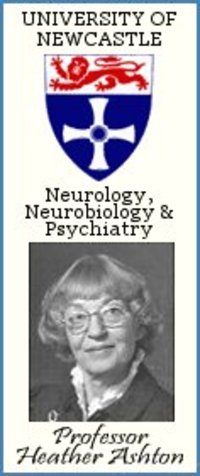
The withdrawal schedules provided in the manual are only intended as "general guides". Each person's experience of withdrawal is unique and the course of withdrawal depends on many factors.
Don’t think benzos are dependence forming on prescription doses?
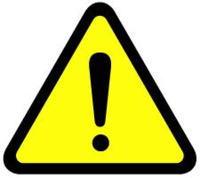
Think again!
“Tolerance and dependence can develop if benzodiazepines are used regularly for longer than 2-4 weeks. There is no minimum dose, for example tolerance and dependence have been observed after the regular use of 2.5-5mg of diazepam.”
Professor Heather Ashton: Emeritus Professor of Clinical Psychopharmacology, University of Newcastle upon Tyne, England
Stevie Nicks: Tell me Lies
Doctor: Benzodiazepines will help to calm you down and keep you from going back to coke…

"Singer Stevie Nicks has publicized the dangers of Klonopin (benzodiazepine) by describing her own detox from the prescription drug as "hellish" and worse than withdrawing from cocaine or heroin.
"Klonopin turned me into a zombie,” she told US Weekly in 2001.
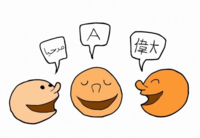
You may be interested to see the notes on corrections of Japanese translation errors, which were contained in the dependency medical report translations, together with explanations of the nature of these errors, and consider their potential implications on the case.
This is very interesting!
I went from being barely able to walk when I was on benzodiazepines to being able to squat 180kgs following abstinence and rehabilitation.

What are benzos for again?

The only time I’ve ever needed to visit a psychologist in my life was AFTER (wrongfully) being prescribed benzodiazepines…

It seems the truths about the potential dangers of benzodiazepines are slowly coming out but with so many cases of prescription dependency worldwide there is clearly a long way to go.
Also, in my experience it appears as if dependency to prescription drugs leans toward a subject of taboo – almost as if society is succumbing to it.
However, is keeping these problems locked up in the closet going to help anyone or change anything?
At first it was difficult sharing my case and story online because it necessitated disclosing personal information, however, I felt the need to come out and help raise awareness outweighed this…
THE WRITING IS
ON THE WALL
for benzodiazepine use

Dr Andrew Byrne
Redfern NSW Australia
Benzodiazepine Dependence, 1997
“If any drug over time is going to just rob you of your identity [leading to] long, long term disaster, it has to be benzodiazepines.”

Dr John Marsden,
Institute of Psychiatry, London
November 1, 2007
“Benzos are responsible for more pain, unhappiness and damage than anything else in our society.”

Phil Woolas MP,
Deputy Leader of the House of Commons,
Oldham Chronicle, February 12, 2004
“The benzodiazepines are probably the most addictive drugs ever created and the vast army of enthusiastic doctors who prescribed these drugs by the tonne have created the world's largest drug addiction problem.”

The Drugs Myth, 1992
“If there's a pill, then pharmaceutical companies will find a disease for it.”

Jeremy Laurance,
The Independent, April 17, 2002.
“To rely on the drug companies for unbiased evaluations of their products makes about as much sense as relying on beer companies to teach us about alcoholism.”

Marcia Angell MD
(Former) Executive Editor New England Journal of Medicine
“It is more difficult to withdraw people from benzodiazepines than it is from heroin.”

Professor Malcolm H Lader
Institute of Psychiatry London
BBC Radio 4, Face The Facts
March 16, 1999
“Withdrawal symptoms can last months or years in 15% of long-term users. In some people, chronic use has resulted in long-term, possibly permanent disability.”

Professor C Heather Ashton
DM, FRCP,
Good Housekeeping, 2003
“Clearly, the aim of all involved in this sorry affair is the provision of justice for the victims of tranquillisers.”

Both the High Court and Supreme Court Verdicts dismissed my case completely (100%), despite the comprehensive medical reports, expert opinions, and credible evidence...

Who's protecting society (the tax payers) whose money they receive as salary to protect the public?
As someone who has experienced both doctor induced benzo dependency and the effects of the 3-11 disaster, I immediately became concerned about the overprescribing of prescription drugs to the many thousands of people in the disaster areas.
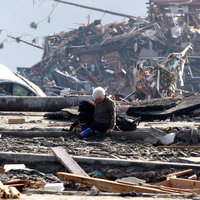
As it happened, I was writing my Supreme Court appeal in the midst of the disaster, so I took this opportunity to try and raise the alarm by including the following passage in my closing comments…
What worked well?
What didn't work so well?

For the interest of the reader, in this site I have given feedback on what worked well in my case and what could have been done better.
A lot of people were surprised that I did not bear a grudge against the prescribing doctor, but I felt anyone can make mistakes.

What got me though, was the fact he showed no remorse even after the evidence had been made clear.
The DSM-IV-TR diagnostic criteria for dependency proved to be a valuable tool in my case because it helped guide the arguments into place.

Initially the defense appeared to be dodging issues which resulted in both parties arguing on different planes.
However, once Addictive Medicine Specialist, Dr. Graeme Judson had introduced the application of the DSM-IV-TR criteria into the equation, it helped to define the arguments for litigation effectively preventing the defense from dodging issues.
(NB: There has been some controversy over the DSM, and apparently, doctors can also use these criteria to their advantage, so in my case, there was sufficient consultation with my lawyer.)
Seems people are all saying the same things over and over…

- I was like a zombie
- It felt like I was in hell
- It was much harder to come off benzodiazepines than anything else I'd ever had before
- It took a chunk of my life away
- It has destroyed my life
- The doctor never told me they were addictive / The doctor told me they weren’t addictive
- When I complained my condition was worsening the doctor prescribed me more...

Each one of us has a different experience of withdrawal.
The duration and degree of intensity can vary depending on the individual and there are many reasons for this.
The informed consent argument formed an integral part of the case because it was needed to prove negligence.

Without negligence there would have been no accountability, and therefore, no case from the outset.
In section 4 of his fourth report, Addictive Medicine Specialist, Dr. Graeme Judson explained the principles of prescribing and informed consent in relation to my case and sample applied.
The monitoring argument also formed an integral part of the case because it too was needed to prove negligence.
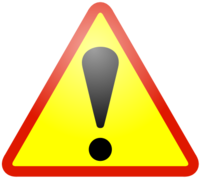
As above, without negligence there would have been no accountability, and therefore, no case from the outset.
As with informed consent, in section 4 of his fourth report, Addictive Medicine Specialist, Dr. Graeme Judson explained the principles of prescribing and monitoring in relation to my case and sample applied.

This section focuses on some of the apparent injustices of the Japanese courts in my case. To help highlight these, some parts of this section include cross-referencing between the High Court Verdict and the Dependency Reports which were all based on the official evidence and the DSM-IV-TR diagnostic criteria for dependency.

- Our key witness was twice denied the opportunity to testify – once by the Tokyo District Court and once by the Tokyo High Court.
- The Tokyo District Court judge raised an issue in the defense's favour only after proceedings had ended totally denying us any opportunity for rebuttal.
- The Tokyo High Court judge chose to use the package inserts from the drug companies to determine the amounts at which benzodiazepines could be deemed addictive, completely ignoring the extensive evidence (literature, expert opinions etc) submitted to the contrary.
- The courts made no issue over the prescribing doctor diagnosing me with one thing and treating me with drugs used for something completely different.
-
More than half the applied DSM-IV-TR diagnostic criteria for dependency were not addressed in the verdict.
- The presiding High Court judge was replaced half way through proceedings by a judge who knew absolutely nothing about the case or benzodiazepines before the verdict was delivered.
It is not uncommon for drugs in Japan to be prescribed in powder form

I was prescribed 5 different drugs, including 3 kinds of benzodiazepines mixed together in powder form (dispensed in sachets) and a tricyclic antidepressant, without being correctly informed about the drugs or the treatment.
When I returned to NZ, Addictive Medicine Specialist, Dr. Graeme Judson said “I can’t believe you made it through customs at the airport!”
Throughout this entire ordeal, I came to realize the importance of “Balance”.

As pressing as the court deadlines were and as demanding as the case was, without maintaining a balance in life including rest, recreation, work, socializing, diet, sleep etc. it would have been impossible to sustain.
However, it was always a razor edge fine line between making progress and maintaining health and balance.
Subsequently, it took a lot of skill and adapting.
Did You Know?
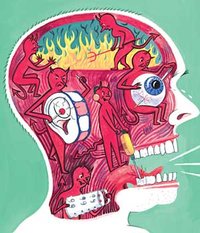
Tolerance doesn’t always develop across all symptoms.
For example, someone might develop tolerance to the hypnotic (promotion of sleep) effects but not to the anxiolytic (anxiety relief) effects, or they might develop tolerance to some symptoms of anxiety and not others. Tolerance to the various actions of benzodiazepines develops at variable rates and to different degrees (See The Ashton Manual).

When do you suppose my condition was at its worst?
- When I was experiencing moderate levels of work related stress?
- When I was working a high pressure job and involved in a rigorous court battle in another country and language against a world famous doctor, the hospital, and the teams of lawyers and entire networks that no doubt sat behind them?
The answer is A.

Why?
Because at the time of situation (B) above, I wasn’t being mislead by a doctor feeding me a cocktail of highly addictive prescription drugs.
Instead I was employing the use of practical (non-drug) stress management techniques learnt in New Zealand before I returned to proceed with litigation in Japan.
Same principles applied to coping with the affects of the 3-11 disaster...

I was warned about experiencing an inevitable down upon conclusion of my court case; much the same as what Olympians experience at the end of the games. I thought I’d be fine because I had my job and my hobbies.
However, when the time came I found myself dealing with it alone, jobless, penniless, and at one point homeless following the 3/11 disaster.
This has been an incredible challenge in itself, but as stated above, I was able to see this through without the need for drugs from misleading doctors.
A doctor that took the time to listen…

Whilst residing in state housing in Nagano, as an evacuee from Fukushima, I consulted a local ENT about ear pain from overuse of earplugs.
As we got talking he learned of my situation with regards to being displaced by the 3/11 disaster and Fukushima nuclear accident.
As a result, he also learned that I was under some stress.
However, instead of labeling me with some fancy diagnostic term and prescribing me drugs, he sat down and we discussed possible solutions as to how to I might be able to relocate, get my job back, etc.
He did this after his surgery had closed over a cup of tea – what a great doctor and what a great guy!
Cause for Alarm!

Consider this extract from:
A Review of David Healy's “The Psycho-pharmacologists III” by Professor Heather Ashton
How is it that the pharmaceutical industry has come to dominate the field?
Healy points out that drug companies “are now not simply confined to finding drugs for diseases. They have the power to all but find diseases to suit the drugs they have”.
Pierre Simon (Sanofi Pharmaceuticals) remarks: “In the beginning the pharmaceutical industry was run by chemists.
This was not so bad... Now most of them are run by people with MBAs... people who could be the chief executive of Renault, Volvo or anything.
They don't know anything about drugs.” The problem comes when a chemist presents an interesting drug to the financial analyst, who asks: “What is the market?”
The chemist has to decide for what indication the drug will be developed. If the indication is not there, it must be created.
It was difficult to get any relief from the ongoing symptoms
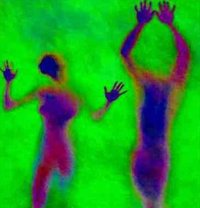
Unlike injuries where you may get some relief from adjusting your posture etc, with drug dependency in my case, the pain was both mental and physical and ran 24/7 regardless…

Ever wonder why the diazepam conversion rates differ from source to source?
Addictive Medicine Specialist, Dr. Graeme Judson explains as follows:
“The rate used for converting Diazepam equivalents tends to differ from source to source. This is because individual variation in clinical responses to “equivalent” doses can vary so close monitoring of patient response to substitution is necessary when converting from one Benzodiazepine to another.”
Many people have asked me why I fought as far as the Supreme Court of Japan and why I decided to set up this website.
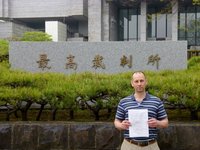
Regarding the former, I felt it was just simply wrong – people shouldn’t go to their doctor and come away suffering like that. I could see there was a significant problem in the current medical world that was affecting not only me but many others as well. I felt the problem needs to be brought to the attention of the authorities and there needs to be some accountability.
Regarding the later, knowing what prescription dependency is like, and being aware of the Effects on Us All, I felt the need to do something so that others aren’t led into suffering the same fate. This gave way to the idea of establishing this website.
Throughout this most grueling of challenges, I was always able to draw on inspiration from the All Blacks, and in particular captain Richie McCaw.

No matter how hard things got, or even when they were hard done by, they never complained and just got on with it.
AWESOME!
There were many challenges in my case.

These included fighting a world famous doctor in another country and language, acting as go-between for a harsh natured Japanese speaking lawyer and a sensitive natured English speaking doctor, making my Supreme Court Appeal whilst evacuating from Fukushima etc during the 3/11 disaster etc…
In my case, “confusion” appeared to be the main tactic of choice employed by the defense.

Enter the term “Autonomic Nervous Disorder” (The Perfect Smokescreen).
(Partial Reference: benzo.org.uk)
Journalists have regularly exposed the Benzodiazepine Scandal with stories of celebrity deaths attributed to benzo use as well as the blighted lives of ordinary people.
Benzodiazepines were, by all accounts, implicated in the deaths of:
- Elvis Presley
- Paula Yates
- Michael Jackson
- Heath Ledger
- Brittany Murphy
- Amy Winehouse
- DJ AM (a.k.a. Adam Goldstein)
- Anna Nicole Smith
- Margaux Hemingway
- Don Simpson
- David Foster Wallace
- Whitney Houston

I Will Always Love You
How anti-anxiety meds are killing celebrities
It used to be that hard drugs were the cause of celebrity overdoses…Of the celebrities who have overdosed on drugs in the past five years, eight appear to have taken prescription medications — specifically, a mix involving easily accessible anti-anxiety medications known as benzodiazepines or “benzos.”
Below are some of the skills I needed to call upon in my case, however, unlike my case where I was required to play an active role between two countries and languages, not all cases may require such input from the claimants.

- Analytical
- Language
- Translation
- Communication
- Cross cultural
- People
- Negotiation
- Coordination
- Research
- Formal writing
- IT
- Computer
- Stress management
- Time management
- Money management
- Health maintenance
- Self awareness
- Adaptation
- Flexibility
- Endurance
- Control
- Drive
- Belief
- Commitment
- Sacrifice
For many months and years I had to endure the effects and suffering of a horrible benzodiazepine dependency.
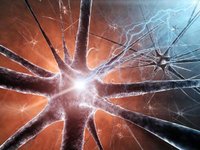
During my quest to seek recognition for this, I thought the defendant hospital, doctor and courts had a lot of nerve to turn around and tell me that I wasn’t dependent (despite having attended a drug rehabilitation program with follow-up consultations lasting more than a year)...
I included the quote in the top left corner of this site because many people thought I was crazy for pursuing my case.

However, my philosophy is we can either choose to do something, or choose to do nothing. The former gives way to hope for many people. The latter…? Whichever way, it’s all in our hands…
I first became acquainted with Prof. Ashton when my lawyer and I were desperately seeking literature stating that a patient can experience withdrawal symptoms even while still taking the drugs.
She subsequently provided this key information and later other useful information as well.
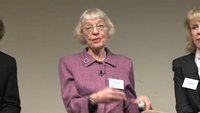
We maintained close contact ever since; making efforts to raise awareness about this massive social problem.
This work included the translation of The Ashton Manual in Japanese.
This section shows a variety of other benzodiazepine related videos that may be of interest.

This page has been set up to give readers the opportunity to share their comments.

If you wish to send a message of your own please do so by sending an email through the contact page.
Alternatively, you can use the Benzo Case Japan facebook page.
The amount of actual loss and damages in my case can be seen in the Official Loss and Damage Forms which are registered with the courts.

My Official Court Statement 2 may help give an idea of the nature of some of these damages.











